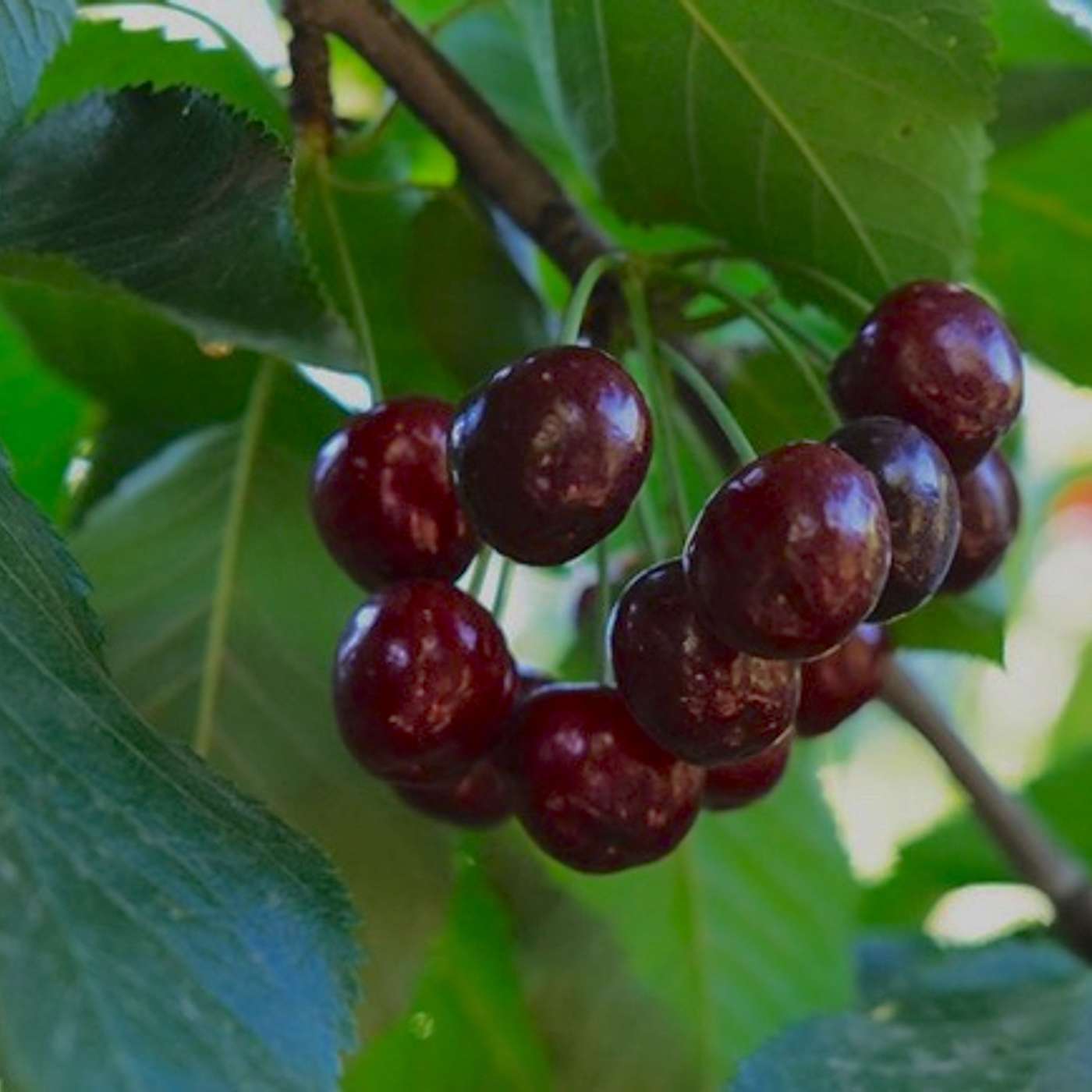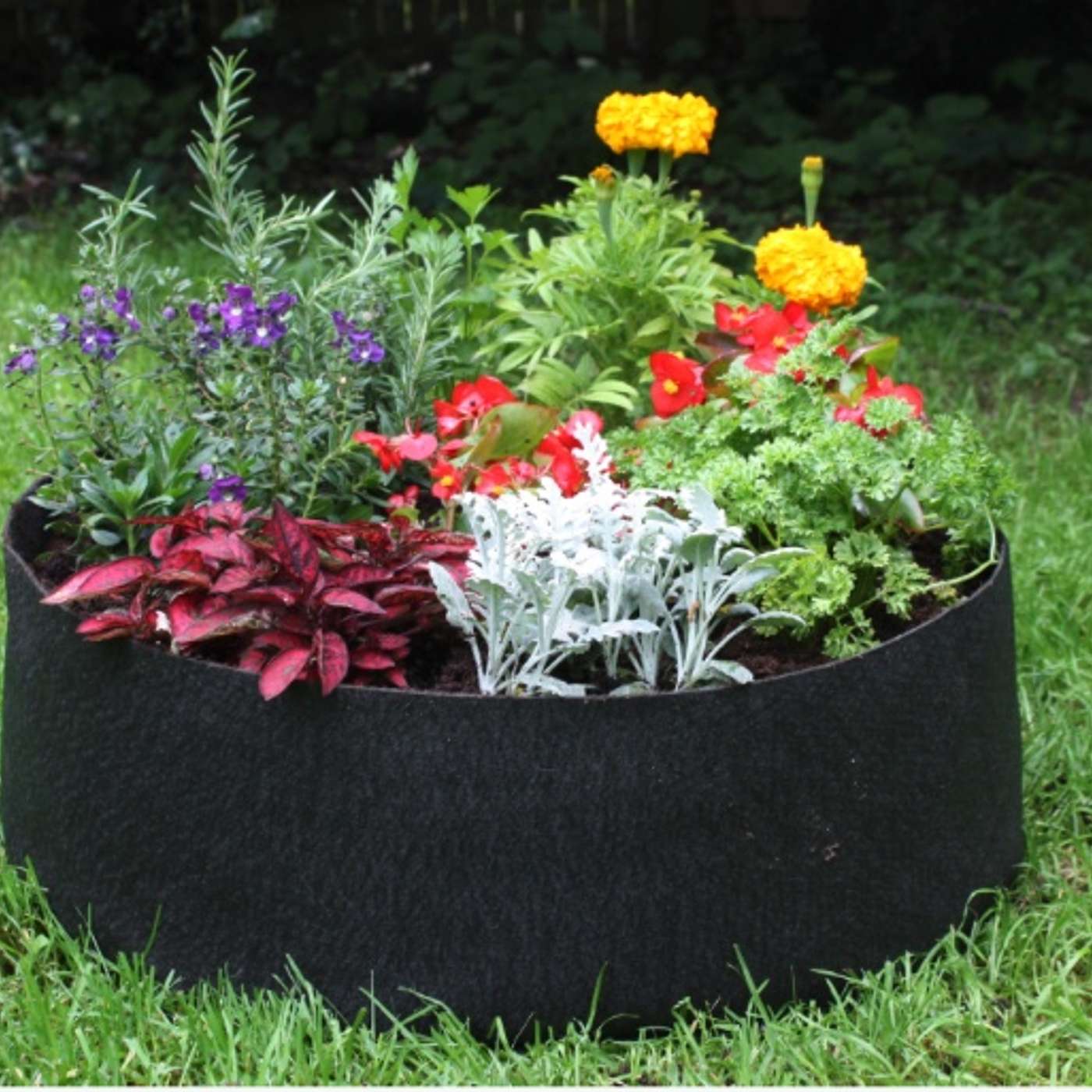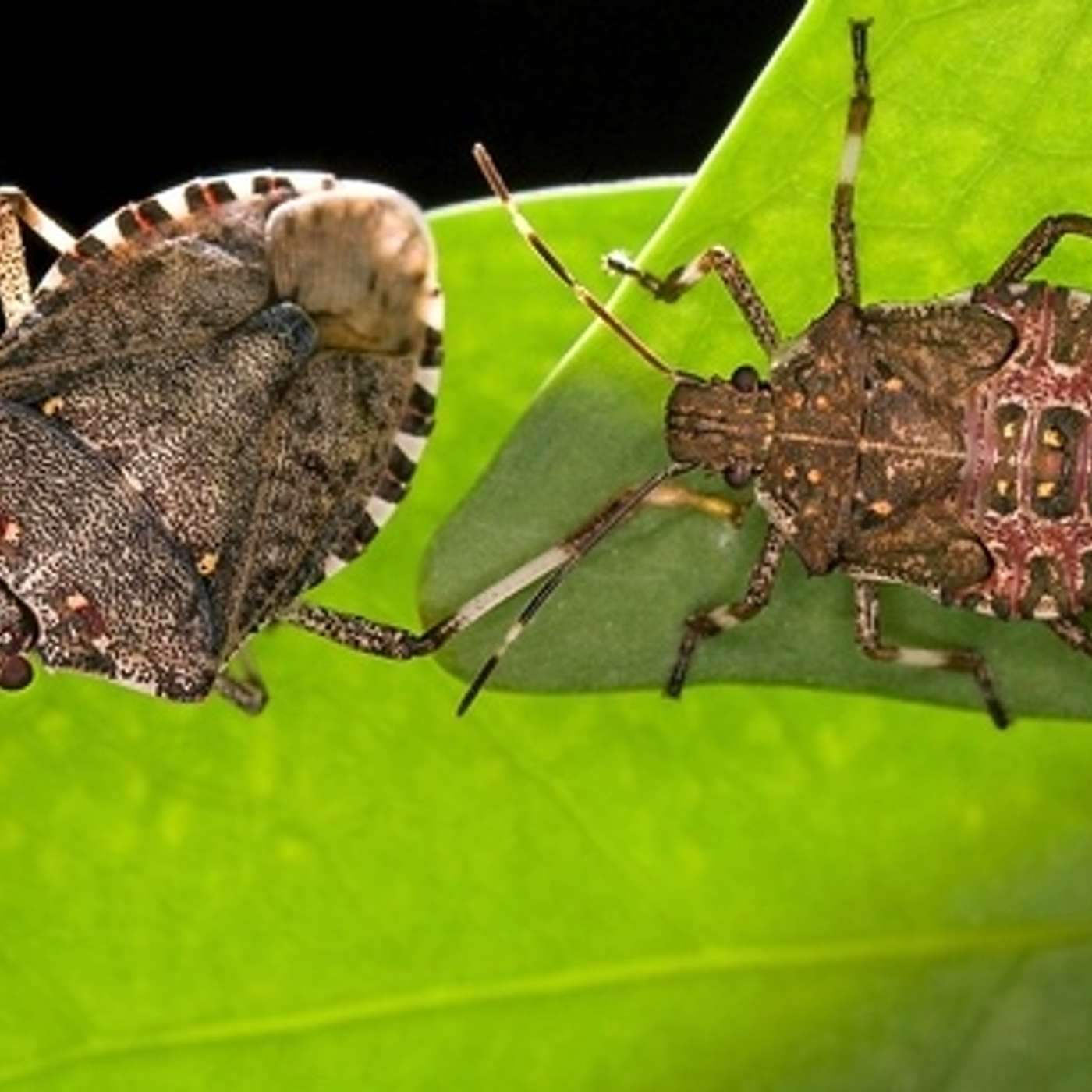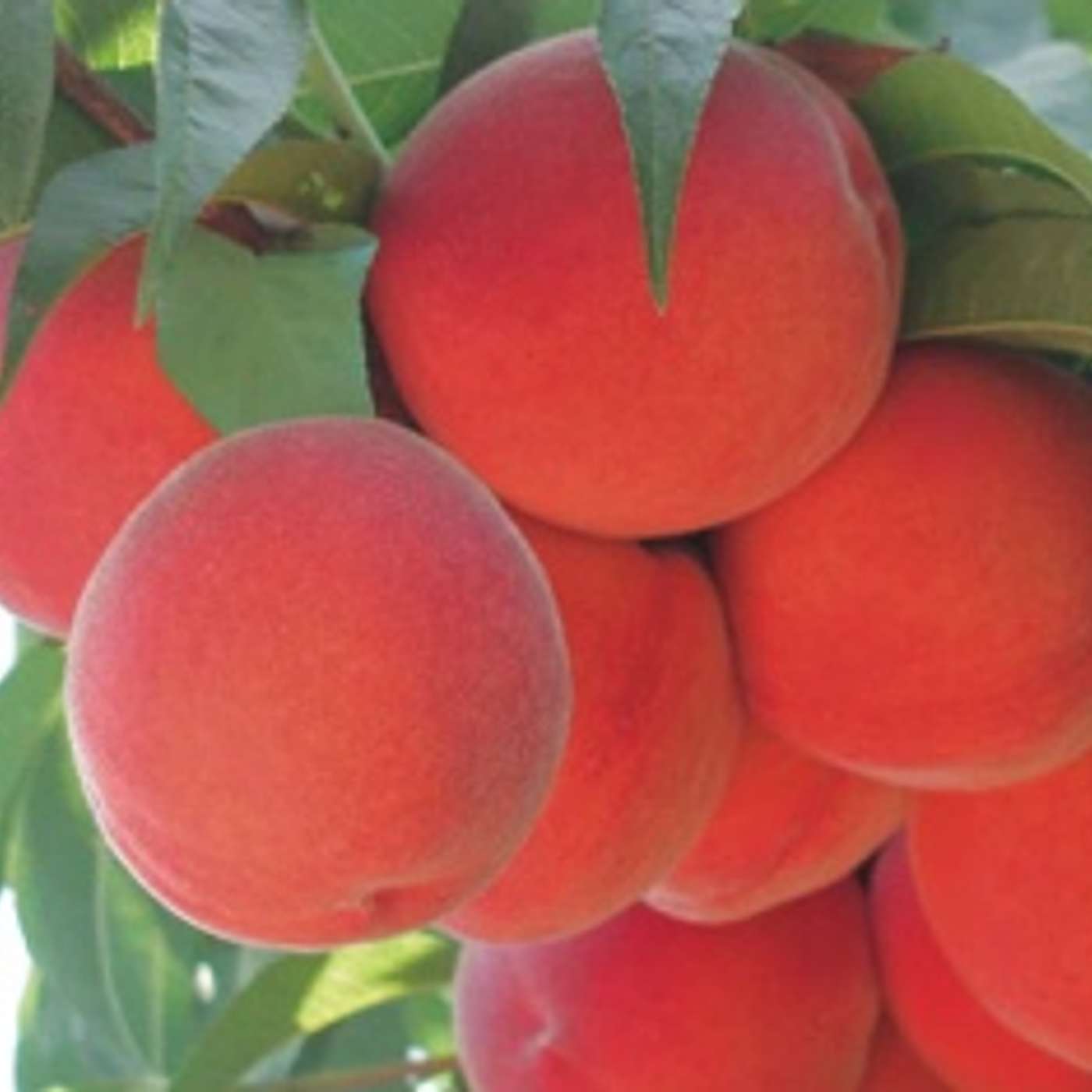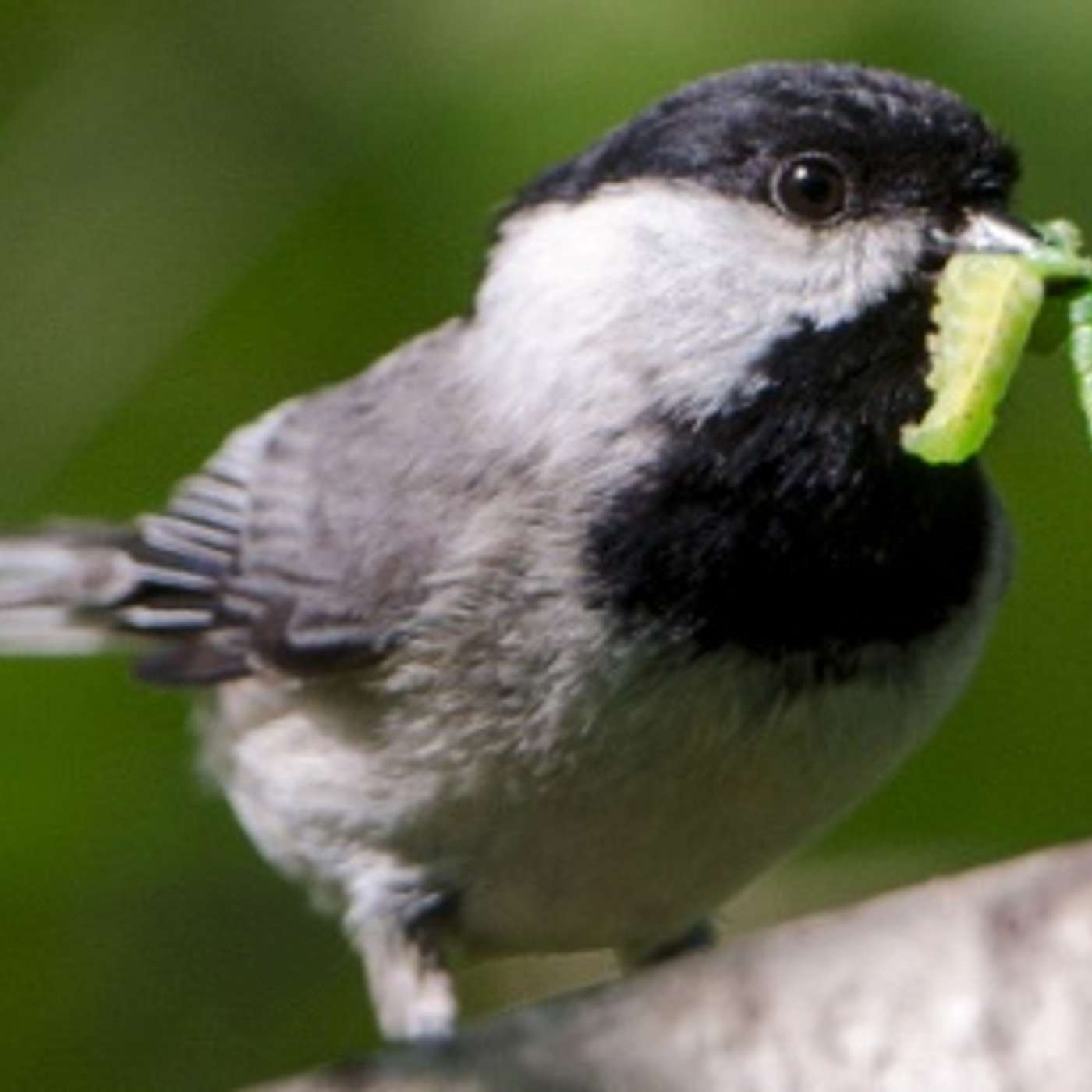Garden Basics with Farmer Fred
082 Fabulous Fruit Friday - The Black Republican Cherry. Stink Bug Control. Attracting Birds to control insect pests.
Fabulous Fruit Friday is back on the Garden Basics podcast. Fruit tree expert Ed Laivo will tell us about one of the tastiest cherries you’ve probably never had, but you need to try, and is now available. It’s an old heirloom variety, the Black Republican Cherry. A sweet piece of fruit that has a good story behind its name, as well.
Stink bugs love your garden in spring and summer. We have tips for controlling this widespread pest of fruits and vegetables.
Also, how to attract birds to your garden to do battle against the bad bugs.
It’s all on episode 82 of the Garden Basics podcast. And we will do it all in under 30 minutes. Let’s go!
The Garden Basics with Farmer Fred podcast is brought to you by Smart Pots and TomorrowsHarvest. com.
Pictured: The Black Republican Cherry, from TomorrowsHarvest.com
Links:
Stink Bug Control Tips
Bug vacuums!
Attracting Birds to Your Garden
More episodes and info available at Garden Basics with Farmer Fred
Garden Basics comes out every Tuesday and Friday. More info including live links, product information, transcripts, and chapters available at the home site for Garden Basics with Farmer Fred. Please subscribe, and, if you are listening on Apple, please leave a comment or rating. That helps us decide which garden topics you would like to see addressed.
Got a garden question? There are several ways to get in touch:
leave an audio question without making a phone call via Speakpipe.
Text us the question: 916-292-8964. E-mail: fred@farmerfred.com or, leave a question at the Facebook, Twitter or Instagram locations below. Be sure to tell us where you are when you leave a question, because all gardening is local.
And thank you for listening.
All About Farmer Fred:
Farmer Fred website: http://farmerfred.com
Daily Garden tips and snark on Twitter
The Farmer Fred Rant! Blog
Facebook: "Get Growing with Farmer Fred"
Instagram: farmerfredhoffman
Farmer Fred Garden Videos on YouTube
As an Amazon Associate, I earn from qualifying purchases from possible links mentioned here.
Thank you for listening, subscribing and commenting on the Garden Basics with Farmer Fred podcast and the Beyond the Garden Basics Newsletter.
Fabulous Fruit Friday is back on the Garden Basics podcast. Fruit tree expert Ed Laivo will tell us about one of the tastiest cherries you’ve probably never had, but you need to try, and is now available. It’s an old heirloom variety, the Black Republican Cherry. A sweet piece of fruit that has a good story behind its name, as well.
Stink bugs love your garden in spring and summer. We have tips for controlling this widespread pest of fruits and vegetables.
Also, how to attract birds to your garden to do battle against the bad bugs.
It’s all on episode 82 of the Garden Basics podcast. And we will do it all in under 30 minutes. Let’s go!
The Garden Basics with Farmer Fred podcast is brought to you by Smart Pots and TomorrowsHarvest. com.
Pictured: The Black Republican Cherry, from TomorrowsHarvest.com
Links:
Stink Bug Control Tips
Bug vacuums!
Attracting Birds to Your Garden
More episodes and info available at Garden Basics with Farmer Fred
Garden Basics comes out every Tuesday and Friday. More info including live links, product information, transcripts, and chapters available at the home site for Garden Basics with Farmer Fred. Please subscribe, and, if you are listening on Apple, please leave a comment or rating. That helps us decide which garden topics you would like to see addressed.
Got a garden question? There are several ways to get in touch:
leave an audio question without making a phone call via Speakpipe.
Text us the question: 916-292-8964. E-mail: fred@farmerfred.com or, leave a question at the Facebook, Twitter or Instagram locations below. Be sure to tell us where you are when you leave a question, because all gardening is local.
And thank you for listening.
All About Farmer Fred:
Farmer Fred website: http://farmerfred.com
Daily Garden tips and snark on Twitter
The Farmer Fred Rant! Blog
Facebook: "Get Growing with Farmer Fred"
Instagram: farmerfredhoffman
Farmer Fred Garden Videos on YouTube
As an Amazon Associate, I earn from qualifying purchases from possible links mentioned here.
Thank you for listening, subscribing and commenting on the Garden Basics with Farmer Fred podcast and the Beyond the Garden Basics Newsletter.
GB 082 Fabulous Fruit Friday. Stink Bugs. Birds for Pest Control. 24:13
SPEAKERS
Quentyn Young, Rachael Long, Ed Laivo, Farmer Fred
Farmer Fred 00:00
Garden Basics with Farmer Fred is brought to you by Smart Pots, the original lightweight, long lasting fabric plant container. it's made in the USA. Visit SmartPots.com slash Fred for more information and a special discount, that's SmartPots.com/Fred.
Farmer Fred 00:20
Welcome to the Garden Basics with Farmer Fred podcast. If you're just a beginning gardener or you want good gardening information, well, you've come to the right spot.
Farmer Fred 00:33
Fabulous Fruit Friday is back on the Garden Basics podcast, sponsored by Tomorrow's Harvest.com. Fruit tree expert Ed Laivo will tell us about one of the tastiest cherries that you've probably never had, but you need to try. And it's now available. It's an old heirloom variety called the Black Republican cherry. It's a sweet piece of fruit that has a good story behind its name as well. Stinkbugs love your garden in spring and summer. We have tips for controlling this widespread pest of fruits and vegetables. Also, how to attract birds to your garden to do battle against the bad bugs. It's all on episode 82 of the Garden Basics podcast. And we'll do it all in under 30 minutes. Let's go.
Farmer Fred 01:20
Welcome back to Fabulous Fruit Friday. It's good to be back and Ed Laivo joins us from Burchell Nursery and Tomorrow's Harvest.com with more great fruit tree selections. And there's plenty available this time of year at your favorite nursery and online. Ed, it's a pleasure to have you back. For people who may not have heard you on the program last year, talk a little bit about Burchell nursery and the program, Tomorrow's Harvest.com
Ed Laivo 01:47
Burchell Nursery, of course, is a large wholesale grower in the Central Valley of California. It's been around for many, many, many years. And specializing in almonds. And we are now selling one of the most popular almonds, the Shasta almond that's fast becoming one of the most highest demanded almond in the industry, which is very cool. But we're talking primarily about the home garden division of Burchell nursery, which, of course, I really take a particular joy and because I've been in the home garden industry, for the better part of 40 years. So, you know, is definitely part of my character. And so I'm really at home, in the environment that we're creating. And we have a great e-commerce site called Tomorrow's Harvest, which has a lot of exciting varieties that have come out of the Burchell program through the years and some great tasting fruits. I'm really having a ball just going through this large library of fruit varieties that are all new to me. And so I'm doing taste testings and I'm looking for the next exciting peach, the next exciting nectarine, the next exciting plum, you know, there's some good plum apricot crosses that that are available. So I mean, we've got a lot of things that we can have some fun introducing in the coming years.
Farmer Fred 03:23
Exactly. There's apples, apricots, peaches, plums, cherries and so much more. It's not just almonds, there's a lot of great deciduous fruit trees available from Tomorrow's Harvest.com. Now I know right now that there are a lot of Burchell nursery fruit trees available at retail nursery nurseries throughout California, it'll probably expand in the future. But right now probably the best place to get Burchell fruit trees would be online from Tomorrows Harvest.com
Ed Laivo 03:50
Correct. Yeah, it is. And definitely during this bare root period that we're in right now. We have a great program that we call our plantable paper pots. And this is while everybody else is trying to root their trees into their plastic containers makes it difficult you know for you to for them to transport and it makes it difficult for them to sell we have a paper pot that we actually put really beautiful trees into and we secure them in with a cap and then zip-tie them with a cap in so the trees are held firmly into the paper pot and then tied in plastic, put it in a box, sent right to front door. very easy. If you're ready to plant, you just go ahead and dig a hole.
Farmer Fred 04:33
So where can you find videos that explain how to plant with a plantable paper pot?
Ed Laivo 04:38
Well, you can find them on Facebook or Instagram we have our Facebook page for tomorrow's harvest and our Instagram page for tomorrow's harvest. And yeah, we've got all kinds of neat little videos out there. Most of them are to promote the idea that you know if you buy a bare root tree that you know is in a paper pot and we take care not to prune the roots aggressively. When we put them into the paper pots, we actually make the paper pot or the root set well into that paper pot. We just plant it pot and all.
Farmer Fred 05:09
And you can do that as soon as you get it.
Ed Laivo 05:11
You can do it as soon as you get it or you know, like if it's raining and yucky outside, you don't want to go outside, put it aside somewhere and it's what they call it heeled in, meaning that you don't have to do anything to protect the root system. The root system is planted into the pot so the root system is protected and ready to go when you are.
Farmer Fred 05:30
just keep it watered.
Ed Laivo 05:31
Yeah, just keep it watered.
Farmer Fred 05:32
In past episodes of Fabulous Fruit Friday, we've talked about the various peaches, nectarines, apricots, Asian pears and apples available from tomorrow's harvest.com. What do you have for us today?
Ed Laivo 05:45
Oh, man, I tell you, I've got one of the most exciting varieties of cherry that anybody has ever had. I mean, as far as its taste is concerned, and that's the black republican cherry.
Farmer Fred 05:57
The Black Republican cherry.
Ed Laivo 05:59
Correct. The black republican cherry. As ominous as it sounds, it really has a history and a story that goes along with it, to support it, too. It was actually a political gesture. Back in the 1800s, just right after the Civil War, and done by an Oregon grower named Seth Llewellyn. But the Black Republican is is really an amazing, intense, I mean, tremendously intense flavored sweet fruit with just this distinguishing characteristic that is hard to describe. But it sets it apart from all other cherries.
Farmer Fred 06:37
Yeah, we should point out about Seth Llewellyn that he named it the Black Republican cherry because he was a Quaker and an abolitionist. And that he was just trying to promote his abolitionist beliefs.
Ed Laivo 06:49
Correct. Yeah, that's what it was. It was a totally a political statement. That's exactly what it was.
Farmer Fred 06:54
And the black Republican cherry, I hear it's good for canning and freezing.
Ed Laivo 07:00
It is. I mean, anything that you would do with a sweet cherry, the black republican would be good for you. Absolutely. And it's a little more cold hardy too, as well. It seems to take a little bit more cold than the average sweet cherry does, too. So that's another important feature on it.
Farmer Fred 07:16
Yeah, I did a little reading about the black republican cherry and I guess for years and years, it was basically just used as a pollenizer for other varieties.
Ed Laivo 07:25
Yeah, it's a tremendous pollenizer. All the popular varieties before the new hybrids have come out because new hybrids are all almost all of them are so fruitful. And so you know, of course, they don't really need a pollinator anymore. But at one time, a black republican was like a universal pollinator. Black Tartarian took its place. But of course, there are some who believe that Black Republican, may very well have Black Tartarian as a parent.
Farmer Fred 07:53
It's a variety with a very interesting history and an outstanding taste. As you can tell, Ed loves it, and a lot of people do, and now it's back in circulation.
Ed Laivo 08:05
Yeah, it is. And I think that's really really really cool because you know, some of these older heirloom varieties, you know, they kind of fell out of favor only because new varieties came in and just overshadowed them. They didn't necessarily fall out of favor because they weren't good. Maybe the characteristics that the growers at the time were looking for were maybe a different size in that time period or they were looking for you know, a little different color you know, that became popular, like a lighter red, or something like that. And a lot of times, they get overshadowed. These varieties don't don't necessarily warrant being excluded or lost. They just kind of get forgotten and I think it's important you know, that the California Rare Fruit Growers and so many other great collectors, are, you know, kind of responsible for keeping these trees alive and thank goodness that they do that because to lose some of these really incredible varieties would be definitely a tragedy.
Farmer Fred 09:13
I like what the University of California Davis, their Foundation Plant Services in their Prunus Encyclopedia says about the Black Republican: "revered for its exceedingly rich, sweet, intense, distinctive black cherry flavor. Both the deep purple color and distinct flavor carry through in black cherry ice cream or yogurt. Some say the flavor is earthy with notes of rose, almonds and herbs."
Ed Laivo 09:38
I wouldn't disagree with that at all.
Farmer Fred 09:40
Folks, now you have an idea what Fabulous Fruit Friday is all about here. That's Ed Laivo from Burchell nursery and the Tomorrow's Harvest.com fruit tree program. Visit Tomorrow's Harvest.com to find out more about all the fruit trees available. You will be amazed. Listen to us on Fridays and Ed will give us a fabulous piece of fruit every week worth having in your backyard orchard. Ed Laivo, thanks so much.
Ed Laivo 10:06
Hey, thank you, Fred. It's a pleasure.
Farmer Fred 10:13
Smart Pots are the original, award winning fabric planter. They're sold worldwide. Smart Pots are proudly made, 100% in the USA. Smart Pots are also BPA free. There's no risk of chemicals leaching into the soil your herbs, vegetables and other edibles. That's why organic growers prefer Smart Pots. Smart Pots' breathable fabric creates a healthy root structure for plants. Smart Pots come in a wide array of sizes and they can be reused year after year. If a frost or freeze is in the forecast, moving your frost tender plants that are in the Smart Pots that have handles makes them even easier to move closer to the house for added warmth or you could even move them inside for the winter. Visit SmartPots dot com slash Fred for more information about the complete line of smart pots lightweight fabric containers. It's Smart Pots, the original, award-winning fabric planter. Go to SmartPots.com slash Fred for more info and that special farmer for a discount on your next Smart Pot purchase. Go to SmartPots.com slash Fred.
Farmer Fred 11:20
We like to answer your questions here on the Garden Basics podcast, no matter where you live. And John from Johannesburg in South Africa writes in and says, "I have a large pomegranate tree and a peach tree this year. Both had many fruit, but all the fruit were spoiled. The pomegranate rotted from the bottom and the peaches all had little holes on the skin and a hard, gel-like substance. He attached photos. And Quentyn Young is here from Fair Oaks Boulevard nursery, he's also a Master Gardener. He's been around the world. And South Africa, much like California, has a Mediterranean climate. And I could see where we might have something else in common, and that would be the insect pests.
Quentyn Young 11:58
Yeah, probably similar pests. And if they aren't native then they probably were introduced at some point because we're always exchanging plants, even though now we're a little bit more aware of it. In the past we probably weren't.
Farmer Fred 12:10
Yeah, exactly. Like that's the story of how snails got to California. Somebody brought them in for food. And the next thing you know, they escaped.
Quentyn Young 12:18
Yes, exactly. Right.
Farmer Fred 12:19
So anyway, the picture that John sent in has some sort of white frass emanating from the peaches and he has a picture of a pomegranate that looks absolutely horrible. It looks like somebody took a shotgun to it.
Quentyn Young 12:32
Yeah, it's got some quite significant holes there. Yeah.
Farmer Fred 12:35
So what would cause this sort of damage? And what should John do?
Quentyn Young 12:39
So to me, this is typical of the damage that we would see at the Fair Oaks horticulture Center at the orchard, and also customers bring it into the nursery. And on the peach tree we refer to this as gumosis. And it's usually the feeding of sort of a whole range of insects that generally are called stink bugs. They're basically piercers they're suckers. They pierced the fruit and then you see this. Basically, these kind of liquid sugars kind of being excreted. And again, a general term is just gumosis but that's basically what stinkbug damage will look like on pomegranates at the nursery. And here, the biggest culprit is the leaf footed bugs.
Farmer Fred 13:20
Which are stink bugs. Yeah. when we say stink bugs, there are a lot of common names for stink bugs. There are several varieties. You got the bagrada bug, you got the brown marmorated stink bug, you've got the consperse stink bug, the Harlequin bug, and many others. But basically, the way to tell a stink bug is crush it and smell your fingers.
Quentyn Young 13:39
And they stink. Yeah, they smell. Yeah, they have a distinctive odor.
Farmer Fred 13:42
So let's take an integrated pest management approach to dealing with stink bugs. In an orchard, wherever you may happen to be, I guess one of the easiest things to do is go out there early in the morning when they're least active and can't fly and start hand picking.
Quentyn Young 13:57
Yeah, handpicking when they're big enough, if you can get them in the nymph stage, you might want to do a little research because sometimes they'll look a little bit different as a nymph versus an adult. But that's when you're going to want to be doing in the winter. To get rid of the overwintering eggs. You could use horticultural oil a little bit later, a little bit later using neem oil. But then like you said, especially when they get bigger, they're usually easy to pick off in the morning and just crush or in dropping some soapy water, right.
Farmer Fred 14:24
Yeah, I was gonna say that you may want to wear gloves to that as well if you're if you're handling them. But, yeah, just putting them in some soapy water is a good solution as well. Another strategy is to eliminate any ground covers and weedy areas that might surround your orchards simply because that's where they may be spending the late winter before they move on into your orchard or your other plants come spring or summer. And we should point out it's not just fruits that stinkbugs go after. they like just about everything in your garden.
Quentyn Young 14:54
They love tomatoes, too. Yeah, you see a lot of damage on the tomatoes basically, you know on a ripened fruit You'll see some white dots and then usually some corky damage beneath that.
Farmer Fred 15:04
The good news is that the tomato is still edible. Just cut off the discoloration and the hard portions and the rest of it still edible. But yeah, as that tomato matures, those yellow spots get bigger and bigger.
Quentyn Young 15:15
Yeah, and you know and for a homeowner it's fine. But if you're trying to sell at retail it would be a problem for you.
Farmer Fred 15:20
in John's picture from South Africa there of the pomegranate I think one reason these holes and the discoloration on the pomegranate are so big is that those piercing insects, the stink bugs, probably attack the pomegranate in a smaller stage. And as the fruit grow, those holes and discolorations just got bigger.
Quentyn Young 15:38
Yes, basically, like any sort of damage on the fruit, you'll just start to see decay and the holes get larger.
Farmer Fred 15:43
Another solution for stink bugs might also be to use a vacuum cleaner.
Quentyn Young 15:47
We've done that at the Fair Oaks Horticulture Center. Actually, one of the Master Gardeners brought in a vacuum and vacuumed them off.
Farmer Fred 15:52
What sort of vacuum?
Quentyn Young 15:53
Just a regular vacuum. Yeah. Okay. Shop-vac. Yeah, he could use a shop-vac. Yeah, it would work. Yeah. if your infestation was large enough, I can see you doing that. Yeah.
Farmer Fred 16:04
Now the one thing is that the unpleasant, stinkbug odor is going to be on that filter in the vacuum. So I know the folks at University of California recommend putting a nylon stocking into the vacuum tube and securing the end over the outside of the vacuum tube with a rubber band. And that way the bugs that are collected in the stocking and won't get into the vacuum cleaner filter.
Quentyn Young 16:27
Good point. Yeah, cuz they are kind of smelly.
Farmer Fred 16:30
Another reason for nylons to still be in existence. That, and as tree ties.
Quentyn Young 16:33
There you go Yeah. All right.
Farmer Fred 16:36
All right. So stink bugs and another non chemical solution. Apparently, stink bugs are attracted to light. And the University of California recommends placing a foil roasting pan, filled with some water and a few drops of dish soap. Point a light into the pan and place that pan where you think the stink bugs are, and leave it there overnight. The bugs are attracted to the light and will fall into the water and drown. And basically empty the pan. Repeat as necessary.
Quentyn Young 17:05
I mean, I can see you do that. That will work for a lot of insects. Sure, that'd be great. All right.
Farmer Fred 17:09
There you go. We're just trying to solve your pest problems before they get a hold in your garden. Quentyn Young is manager of Fair Oaks Boulevard nursery here in the Sacramento area. Also he's a University of California Cooperative Extension certified master gardener. Quentyn, thanks for your time.
Quentyn Young 17:22
Thanks, Fred.
Farmer Fred 17:32
The warmer weather means that fruit trees and berry bushes will soon spring to life, with the promise of tasty, nutritious fresh fruit for you and your family. What are you waiting for? A website for more information? OK, it’s Tomorrow’s Harvest dot com, your go-to site for a complete line of backyard fruit trees and bushes. Tomorrows Harvest fine line of fruit trees is the result of 75 years of developing, testing and growing. For well over 75 years three generations of the Burchell family have been at the forefront of research and development of plants of the highest quality. All of these beautiful, edible plants have been carefully cultivated for your home garden. And they come in Plantable Paper Pots, ready for you to stick directly in the ground, pot and all. Look for Tomorrow’s Harvest fruit trees, including the Black Republican Cherry, at better retail nurseries. And If your favorite nursery doesn’t carry any of Tomorrows Harvest fruit, nut and berry varieties, you can order them directly from Tomorrows harvest dot. com. Let the Burchell family’s three generations of experience take root in your home orchard, landscape and garden. Tomorrows Harvest: It’s goodness you can grow. To find out more about their nutritious and delicious fruit and nut varieties, visit tomorrowsharvest.com.
Farmer Fred 18:52
We've talked a lot on this program about attracting the garden good guys, the beneficial insects, that do such a great job of controlling garden pests. But let's not give short shrift to our bigger friends. They need a place to live, as well, to battle the bugs in your garden. We recently spoke with UC Cooperative Extension farm advisor Rachael Long about how to attract birds to your garden. Hedgerows may be out of the scope for many backyard gardeners, but I think adding evergreen shrubs, where you have dense foliage, that can serve as a hotel for some of our bigger friends like birds who can help control things like tomato worms. It's very important to have evergreen shrubs here in California, the California Bay, the Laurus nobilis, the toyon you mentioned, the Manzanita, all of those are important but think about a border of shrubs, evergreen shrubs that help to keep the birds around, the little birds.
Rachael Long 19:58
Right. Those are actually really, really Important for helping to control pests. For example, we just finished a study looking at that bird predation of codling moth in Walnut orchards and in apples and find that birds and migrating through areas that they are they're gleaning the bark where these codling moth which is a big pest, it's a worm pest of apples, pears, walnuts and they glean the bark and they just they eat up all these overwintering, codling moth. They really help to suppress the pest numbers and, and finding that birds are critically important for helping to control pests in backyard gardens by putting in habitat for birds. It does these, these plants like the toyon, the Christmas berry, and other flowering plants, you know, bring in hummingbirds, but also insectivorous birds that, that feed on on a lot of crop pests like the tomato horn or the army worm pests. And, they do help to control them. And a lot of people are worried that they're going to eat my fruit and such, but overall, the benefits that you get from birds really far outweighs any occasional problems that you might have with some of the birds like feeding on fruit or seeds or nut crops. People think, well if I put in habitat, then I'm going to bring in pest birds. But those would be like your flocking birds like your black birds or your crows or cow birds. But those birds are there regardless of your habitat. And you know, that you could have a hedgerow or not have a hedgerow and those squawking birds are going to really cue in on crops or any sort of, backyard gardens but having , the habitat, this brings in a lot of songbirds that are important for feeding on pests, particularly in the springtime when they need the insects to feed their young a high energy source. And so it is really critically important to put in habitat that favors birds as well.
Farmer Fred 22:23
The Garden Basics with Farmer Fred podcast has a lot of information posted at each episode: transcripts, links to any products or books mentioned during the show, and other helpful links for even more information. Plus, you can listen to just the portions of the show that interest you, it’s been divided into easily accessible chapters. Plus you’ll find more information about how to get in touch with us. Leave an audio question without making a phone call via Speakpipe, at speak pipe dot com. it’s easy, give it a try. And you just might hear your voice on the Garden Basics podcast! If you’re listening to us via Apple podcasts, put your question in the Ratings and Reviews section. Text us the question and pictures, or leave us your question at: 916-292-8964.916-292-8964. E-mail: fred@farmerfred.com . If you tell us where you’re from, that will help us greatly to accurately answer your garden questions. Because all gardening is local. In the show notes you’ll find links to all our social media outlets, including facebook, instagram, twitter, and youtube. Also, a link to the farmerfred.com website.
Farmer Fred 23:48
Thanks for listening to Garden Basics with Farmer Fred, brought to you by Smart Pots. Garden Basics comes out every Tuesday and Friday. It's available on many podcast platforms including Apple, Spotify, Google IHeart, Stitcher and many more. And if you're listening on Apple, please leave a comment or a rating. That helps us decide which garden topics you'd like to see addressed. And again, thank you.
